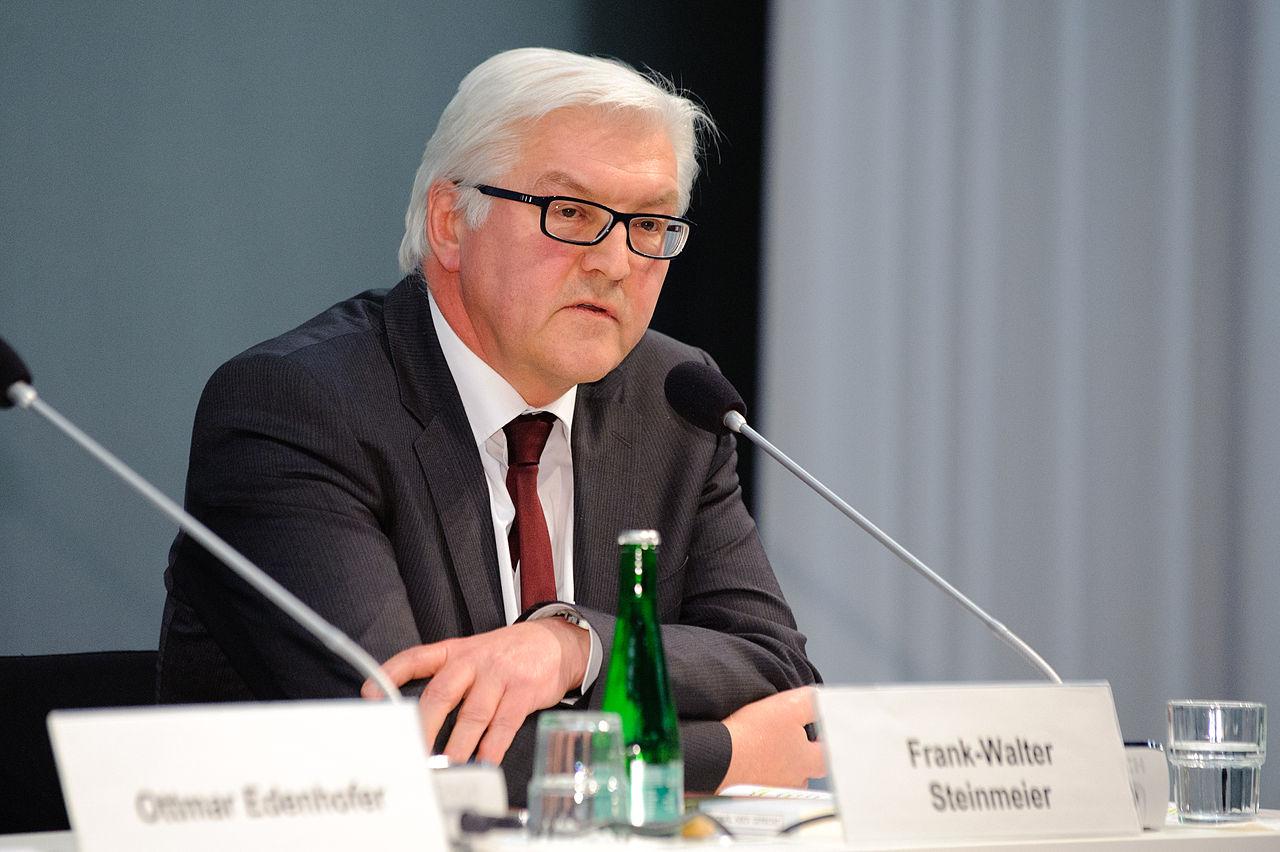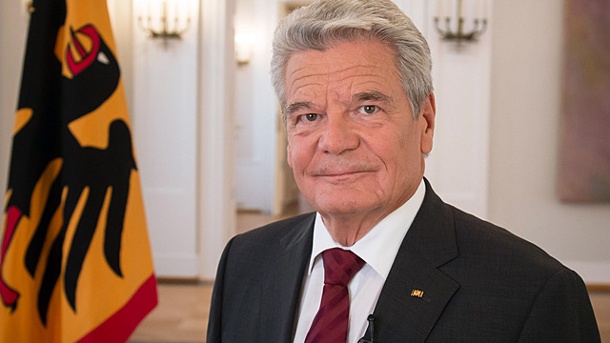Who would want to be President?
Germany is not known for its pomp and ceremony. Unlike in the UK and the US, government is not festooned with colourful robes or displayed in the shadow of statues to great men. German politics, in a world beset by upheaval, grandstanding and false equivalences, is refreshingly modest. Yesterday afternoon was the best example of this low key attitude to the business of politics. With little fanfare Die Bundesversammlung or the German National Convention convened, presided over by the President of the Bundestag, Norbert Lammert. Housed in muted tones of the Budestags main hall, the Convention had one purpose, to elect a new German President. With an overwhelming majority (73.9%), the Convention elected the former Foreign Minister Frank-Walter Steinmeier.
How could this be? There had been no great televised debate, no overly rehearsed sound-bites or vicious attack ads designed to poison opinion. How could anyone know what each candidate believed if none of them were afforded the chance to display their temporary commitments on the side of a bus? Sabres were not rattled, babies were not kissed and sleeves were not rolled up in an improbable attempt to seem like a normal person. Not one candidate was pictured awkwardly eating some regional delicacy and nor were any of them accidentally caught insulting their constituents via a hot mic. It was as if the role of German President was of no importance what so ever.
Despite eschewing the modern trappings of an election, the role of German President is still an important position. As head of state, the German President has a right of veto over laws he or she perceives to be unconstitutional, an ability to sack a Chancellor should they lose the confidence of the parliament and reserve powers that can be enacted in times of instability. Many of these powers are left dormant and it would be easy to see the job as a glorified rubber stamp, if it were not for the instances where the actually President used the right of veto to intervene in the signing of laws that were deemed unconstitutional. Yet, it is generally accepted that the role of President is somewhere between defender of the German constitution, representative of Germany abroad and personification of German morality and values.
A president can sit for between five years (1 term) or ten years (2 terms) and due to the expectation that they represent all Germans, they are expected to avoid becoming embroiled in the day to day political back and forth. Although the role is often given to former or sitting politicians, it is considered to be bipartisan, with active politicians allowing their political affiliations to rest until the end of their tenure. This is perhaps one of the reasons that Presidential comments on politics are seen as very important, if few and far between.
The National Convention itself is made up of all Bundestag members and representatives from all the states of Germany. These representatives are voted on in the states and then following selection are sent to vote at the Convention. Interestingly, state representatives do not need to be sitting members of the state legislature and instead can be prominent citizens. This can lead to some rather entertaining encounters, such as Der Spiegel’s excellent image of Angela Merkel, drag-queen Olivia Jones and German national football coach Jogi Löw discussing the finer points of the German political system.
Becoming a candidate is no easy task, but the position of President is open to all German citizens 40 years of age and over. Since the representatives of the Convention can select their own candidates, Steinmeier’s competition for the role, among others, was a celebrity TV Judge, Alexander Hold and Christoph Butterwegge, Professor of Political Science at the University of Cologne. Surprisingly, the Convention opted to elect a career politician, instead of a celebrity. Of course there is no way to know if this will be the right decision, it is a generally accepted fact in Germany that electing unqualified celebrity TV show presenters to positions of power can only lead to difficulties later.
The National Convention also elects the President without debate, with candidates selected beforehand and agreed on support coming from political groupings. Due to this procedure, it is common for the convention to be simply a formality. For example, Steinmeier had the support of all major parties and so was always likely to win. Even still, the convention process can go through three ballots until a final candidate gains a majority. In this instance, Steinmeier was only required to go through one ballot.
In attendance at the event was the current presidential incumbent, Joachim Gauck, who will retire later this year. In Gauck, Frank-Walter Steinmeier has a tough act to follow. The current President is highly respected by many people and is often considered the “President of the People”, due in no small part to his anti communist and civil rights work in East Germany in the decades before the fall of the Berlin wall and later as the Federal Commissioner for the Stasi Records. It was no surprise that the first person in line to congratulate Steinmeier was Gauck himself, he has been a first class president and will have to settle with just being a first class man once he retires.
There will be tough challenges going forward for Steinmeier, many of which were sounded out by Norbert Lammert in his address to the convention. Lemmert used his speech to call for the strengthening of the European community in the face of opposition from America and Russia. Steinmeier himself has courted controversy recently by declaring the newly elected Donald Trump a “hate preacher” which gained hima reputation as an anti-trump advocate. Whether this continues through his time as President, time will only tell.










